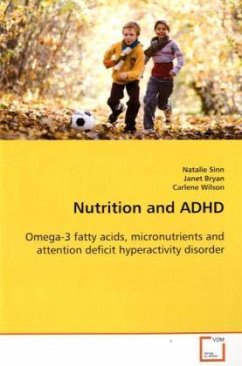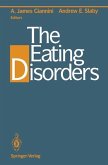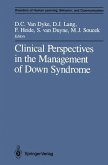Many children have difficulty concentrating,
controlling impulses and remaining still. When these
create significant problems at home and school the
child may be diagnosed with attention deficit
hyperactivity disorder (ADHD). ADHD is the most
prevalent childhood disorder worldwide. A genetic
predisposition has been identified, and this may be
exacerbated by environmental influences including
diet and nutrition. This book outlines the growing
interest in omega-3 fatty acids, brain function and
mental health, and reports the results of a large
study that was conducted as a PhD project with
children who have ADHD symptoms. In a controlled
scientific trial, the children were given omega-3s
with or without micronutrients, or a placebo for 15
weeks and then all were given omega-3s and
micronutrients for a further 15 weeks. Significant
improvements were seen in the omega-3 groups in
attention, impulsivity and hyperactivity compared
with placebo over 15 weeks, and these continued to
improve over 30 weeks with notable improvements in
50% of the children. Therefore in some children
supplementation with omega-3s may correct suboptimal
levels and provide a safe treatment for symptoms of ADHD.
controlling impulses and remaining still. When these
create significant problems at home and school the
child may be diagnosed with attention deficit
hyperactivity disorder (ADHD). ADHD is the most
prevalent childhood disorder worldwide. A genetic
predisposition has been identified, and this may be
exacerbated by environmental influences including
diet and nutrition. This book outlines the growing
interest in omega-3 fatty acids, brain function and
mental health, and reports the results of a large
study that was conducted as a PhD project with
children who have ADHD symptoms. In a controlled
scientific trial, the children were given omega-3s
with or without micronutrients, or a placebo for 15
weeks and then all were given omega-3s and
micronutrients for a further 15 weeks. Significant
improvements were seen in the omega-3 groups in
attention, impulsivity and hyperactivity compared
with placebo over 15 weeks, and these continued to
improve over 30 weeks with notable improvements in
50% of the children. Therefore in some children
supplementation with omega-3s may correct suboptimal
levels and provide a safe treatment for symptoms of ADHD.








